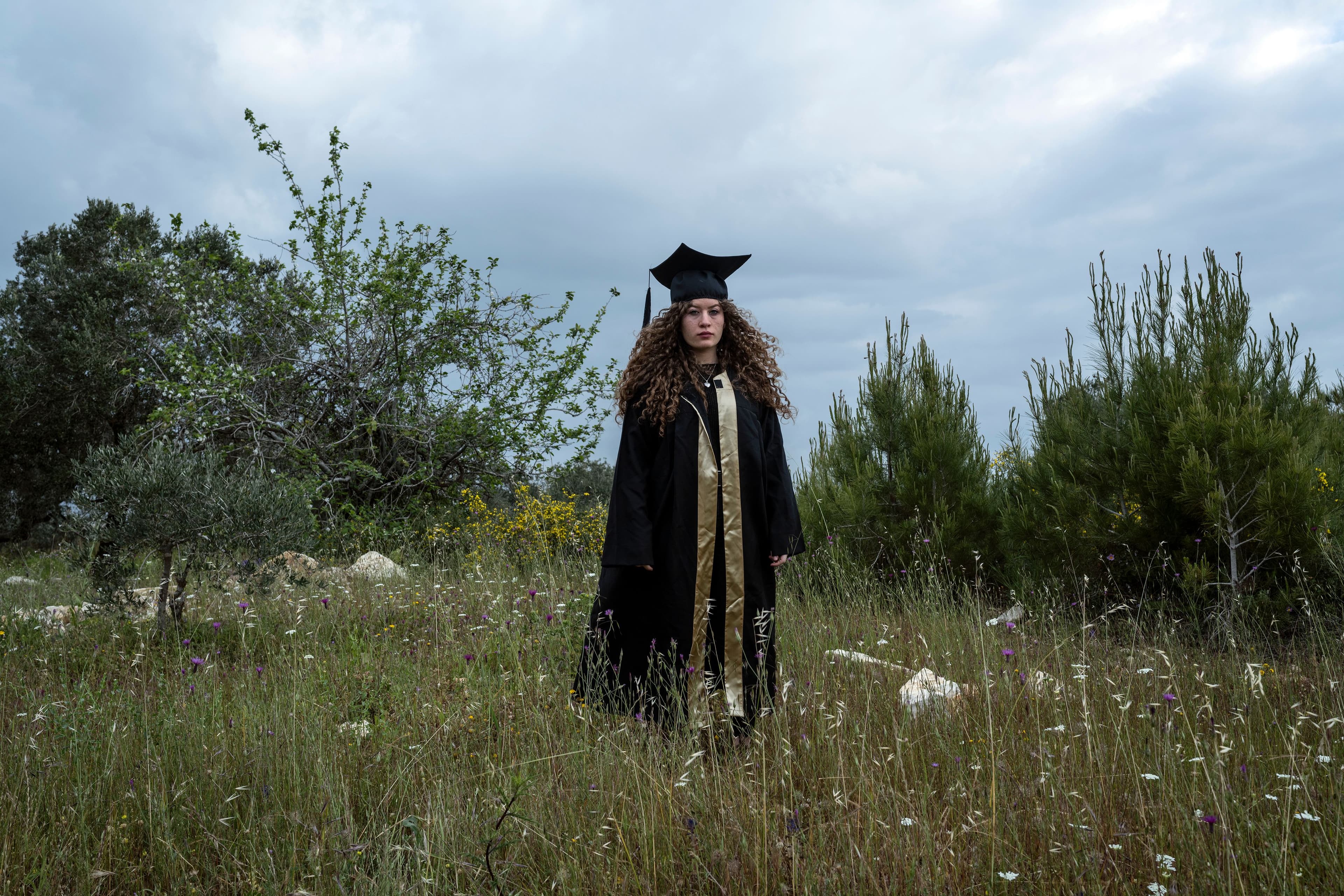
Generation Next: Ahed Tamimi
Ahed Tamimi turned seventeen in an Israeli prison. She had been arrested in December 2017 in the middle of the night when Israeli soldiers stormed her parents’ house in Nabi Saleh, a small Palestinian village of approximately six hundred people in the West Bank, after a video of her slapping and kicking an Israeli soldier days earlier had gone viral. Israeli forces had shot her cousin with a rubber bullet just before the video was filmed during one of the village’s weekly protests, and she recalled being angry that they had the nerve to use her family home as an outpost against her fellow villagers.
After visiting her cousin at the hospital that evening, she came back home and slept in her clothes, “because I had this feeling they were coming to get me,“ Tamimi, now twenty-one, recalls. “When you live in Palestine, detention is something normal. To the global community, it may sound shocking, but to us, this is everyday life.“ (At the end of September 2020, according to B’Tselem, an Israeli human rights organization, 157 Palestinian minors were held in administrative detention by Israeli forces.)
Nabi Saleh hosted weekly demonstrations from 2009 to 2016, protesting the confiscation of its lands and the takeover of its spring by an Israeli settlement, Halamish. According to a 2017 United Nations report, over 250 Israeli settlements have been established in the West Bank, impinging on Palestinian lands, since 1967. These settlements are deemed illegal under international law, and the United Nations has repeatedly upheld the view that their construction constitutes a violation of the Fourth Geneva Convention. Often during protests, clashes ensued between the villagers of Nabi Saleh and the Israeli Army, who attempted to disperse and threaten the crowds with live ammunition, tear gas, and rubber bullets.
As a teenager, Tamimi grew up seeing relatives and neighbors getting arrested on a weekly basis. “I wanted to preoccupy myself with my studies, but how could I when I would see the soldiers from the window of my room?“ she asks.
After eight months of incarceration and countless days of interrogation, often for up to nine hours at a time, Tamimi took a plea deal with encouragement from both her lawyer and other young female inmates she knew from her village. “Outside the prison, you can continue your education and become our voice,“ one told her. Today she is pursuing a degree in international human rights law at Birzeit University in the West Bank.
“I want to broaden my horizon and gain the skills needed to defend my cause in the international courts,“ Tamimi adds. “When I tell the Palestinian story, I want to tell the story of the villagers who defended their land because no one else will do that for us.“
Her new focus on international law may be Tamimi’s boldest and most defiant move yet: “The occupation wants to occupy not just our land, but our minds too,“ and Tamimi seems determined that they do neither.
Read this story and many more in print by ordering our inaugural issue here. See the full Generation Next series here.

As a nonprofit arts and culture publication dedicated to educating, inspiring, and uplifting creatives, Cero Magazine depends on your donations to create stories like these. Please support our work here.






